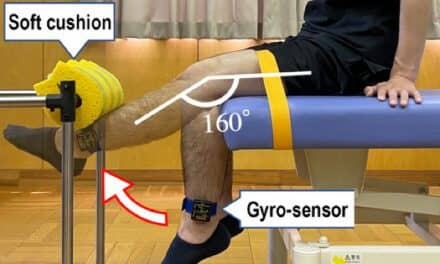It’s possible to use a synthetic thyroid hormone to regulate a gene implicated in neurodegenerative diseases like Alzheimer’s, Parkinson’s and multiple sclerosis, researchers from Oregon Health & Science University suggest.
The findings from tests in cells and mice, published in Cell Chemical Biology, raise the possibility of development of new medication to treat debilitating diseases.
“This is the first example reported that shows it’s possible to increase the expression of the TREM2 gene in a way that will lead to healing in certain diseases.This will generate a lot of excitement.”
— senior author Tom Scanlan, PhD, professor of physiology and pharmacology in the OHSU School of Medicine
The paper’s first author is Skylar J. Ferrara, PhD, a postdoctoral fellow in the OHSU School of Medicine’s chemical physiology and biochemistry department.
Builds On Earlier Study
The discovery builds on a 2013 publication linking genetic variants of TREM2 to risk of Alzheimer’s disease. It’s possible to turn on TREM2 expression and the TREM2 pathway using a compound originally developed more than 2 decades ago to lower cholesterol, the researchers suggest.
Researchers administered an analog of the compound that penetrates into the central nervous system of mice. They discovered they were able to increase the expression of TREM2 and reduce damage to myelin. Myelin is the insulation-like protective sheath covering nerve fibers that’s damaged in disorders like multiple sclerosis.
The pathway activated by the TREM2 gene is also implicated in neurodegenerative diseases, including Alzheimer’s and Parkinson’s, a media release from Oregon Health & Science University explains.
“TREM2 is a receptor. It senses damaged cellular debris from disease and responds in a healing, productive way. The thought is, if you can simply turn up its expression, then that’s going to lead to a therapeutic effect in most neurodegenerative diseases.”
— Tom Scanlan, PhD
Joseph Quinn, MD, professor of neurology in the OHSU School of Medicine, who treats patients with Parkinson’s and Alzheimer’s, says the findings are promising. Quinn wasn’t involved in the research.
“TREM2 is a viable ‘target’ for treatment in Alzheimer’s disease, based on genetics and other studies. This new report has important implications for testing a new therapeutic approach for Alzheimer’s, including raising the potential for developing a new medication to regulate TREM2.”
The synthetic thyroid hormone compound, known as sobetirome and similar analogs, is already licensed by an OHSU spinoff company to conduct clinical trials for central nervous system diseases, including multiple sclerosis. In contrast to other basic science discoveries in mice, Scanlan said this latest discovery connects this class of compounds to Alzheimer’s, Parkinson’s and other neurodegenerative diseases, advancing the science that much closer to clinical trials in people with debilitating disease, the release continues.
“The possibility of doing clinical trials is not millions of miles away,” Scanlan adds. “It would be an achievable thing.”
[Source(s): Oregon Health & Science University, Science Daily]





